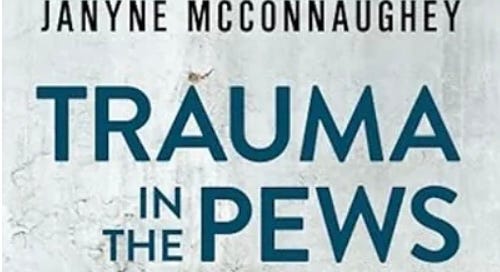A Framework for Trauma-Responsive Faith Communities
A Ministry Resource based on Trauma in the Pews!
This series of posts is a gathering of resources for Trauma in the Pews: The Impact on Faith and Spiritual Practices that will hopefully be helpful in encouraging ministry leaders to become trauma-informed/sensitive/responsive.
Introduction to Trauma in the Pews Resource Content
Trauma in the Pews Resource Index
Arizona Trauma Institute Course
A Framework for Trauma-Responsive Faith Communities
Eight-Hour Course—Self-Paced | Continuing Education Hours: 3.5 | Cost: $58.00
Instructor: Janyne McConnaughey, PhD
Course Description:
This training is a collaborative presentation based on the book, Trauma in the Pews: Impact on Faith and Spiritual Practices. The presentation will address the ways that faith communities often unintentionally misjudge the effects of childhood trauma in both positive and negative ways— often re-traumatizing the traumatized. Five common religious practices will serve as examples in discussing the neurobiological impact of trauma on faith and an individual’s ability to participate in spiritual practices. These practices will consider the topics of sin, conviction, repentance, forgiveness, self-loathing, and unmet childhood needs. The strength of the survivor will be emphasized and five principles of trauma-responsive churches will be offered as paths to provide safe-spaces for both healing and spiritual growth. (Learning Objectives available at website)
Thank you to the Arizona Trauma Institute for making this course possible! The following clip provides a sampling of the content. It picks up during the review of the first session. (Of course it begins with a story—have you ever wondered, “Why the blue bicycle?”)
Comments from End of Course Survey:
Tremendous learning opportunity. I was so appreciative to be an attendee. Look forward to learning more.
This was one of the best trainings I have ever attended! I shared a lot of it with my husband (also a therapist) and our pastor.
This information will be used in my professional life as a therapist and also in my courses. I will use these things in my Trauma and Crises course next summer, but also interweave them in other courses.
I was completely engaged throughout this training. This could easily be an entire course so that discussion could be integrated. Additionally, religious trauma could be incorporated to add another dimension. The topic is included in my dissertation and I am fascinated by it.





